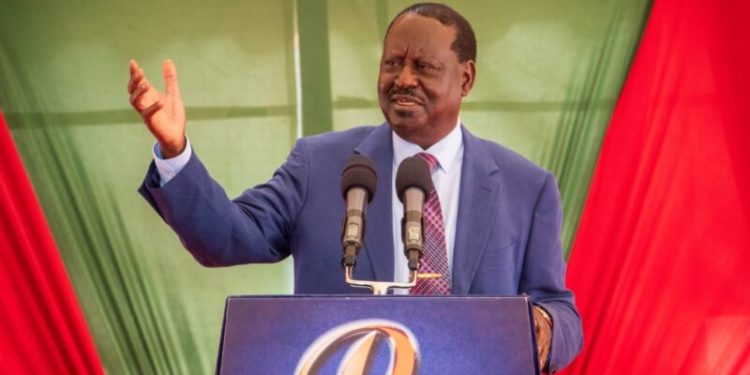African Union (AU) Commission Chairperson aspirant Raila Odinga has initiated a lobbying campaign across the organization’s 55 member states to garner support.
Odinga, who officially announced his candidacy on Thursday, aims to secure backing starting with the seven member states of the East African Community (EAC), comprising Kenya, Uganda, Tanzania, Rwanda, Burundi, DR Congo, and South Sudan.
His unexpected announcement, made during a press conference at his residence in Karen, has ignited widespread debate about his political future, as his bid would entail his absence from Kenya’s political landscape until 2028.
Odinga, stands to exert significant influence across the continent if successfully elected as the Chairperson of the African Union Commission (AUC). According to the AU mandate, the Chairperson assumes twelve statutory responsibilities and receives a monthly salary of KES 2.4 million (US$15,576.75), in addition to various substantial benefits.
Raila Odinga’s potential endorsement for the top seat of the African Union (AU) would entail assuming various responsibilities. These include enforcing the regional bloc’s financial regulations, chairing commission meetings and deliberations, promoting the AU’s objectives, and serving as a depository for all AU treaties and legal instruments.
Moreover, holding the AU Commission Chair position would elevate the incumbent to a status akin to a head of state. This would involve engagement in significant international events such as elections, conflicts, and development, not limited to Africa but extending globally.
A document seen by Sharp Daily highlights the code of conduct for holders of this office. It mandates that Odinga refrain from active involvement in Kenyan politics and maintain a neutral stance in political contests across Africa.
Additionally, the code of conduct stipulates that the AU Chair cannot accept any other public office appointments unless through resignation. Consequently, should Odinga garner endorsement from the 55 member states, he would only retain his voting rights in Kenya as a citizen, with restrictions barring him from active political participation.
This could potentially preclude Odinga from contesting the 2027 presidential elections. Assuming office in January 2025 would result in a four-year term ending in 2028, subsequent to the country’s 2027 polls.
Currently, Odinga is leveraging his continental connections to support his candidacy. He previously served as the AU High Representative on Infrastructure Development in Africa .
















